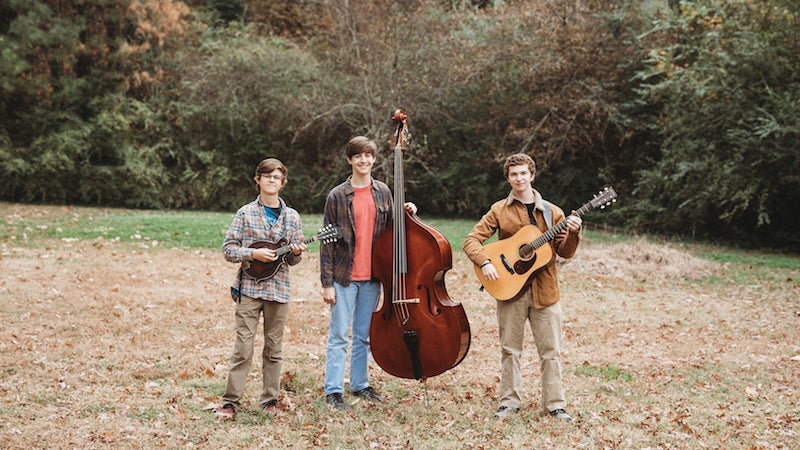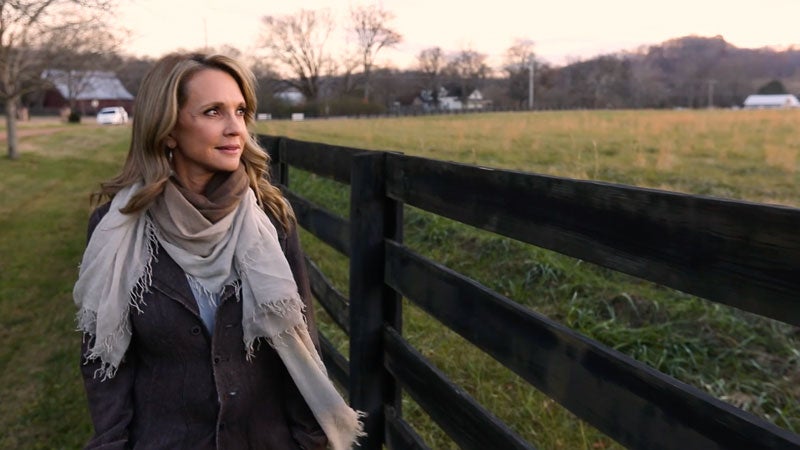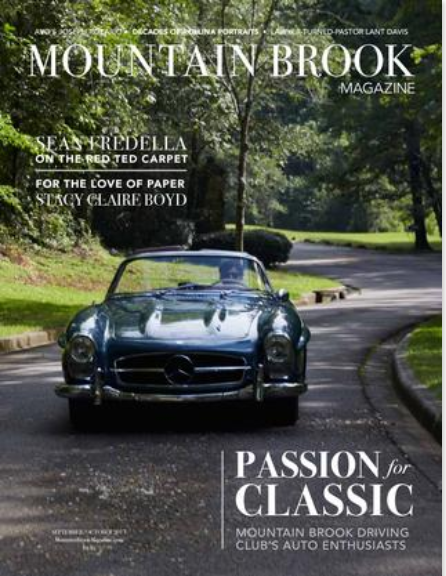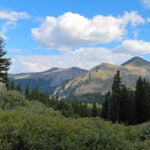By Kaitlyn Baker
Luke Black, Drury Anderson and Sam Wilson are unsure what genre their music falls into. Is it rock? Is it jazz? Is it bluegrass? Yes, they say. They have yet to find a box that fits their style, but for now, they call it “jamgrass.”
The members of The Mountain Grass Unit each feed their music a multitude of sounds. Stevie Wonder, Billy Strings, The Grateful Dead—artists like these are all ingredients in their melting pot of genres.
“I think what’s really getting us going is we’re not…traditional bluegrass musicians,” says Luke, the guitarist and banjo player. “We take different genres and make them bluegrass.” In a typical set, they’ll play everything from classic bluegrass tunes to AC/DC songs, Superstition and others by Stevie Wonder, and even some originals, all with their own twist on guitar, banjo, mandolin and upright bass.
“I’m telling you, it’s all over the place,” Luke says. Some music sounds like metal-bluegrass, some like jazz-bluegrass, and others like rock- ’n- roll-bluegrass. “It’s kind of weird, and I think that’s why people…are starting to like us.”
The Mountain Brook High School students first started playing together one day when Luke picked up the phone and called Sam. He and Drury, the mandolin player, had played together before but now were forming a new band with another mutual friend, and he knew Sam’s dad had an electric bass in their garage. “Get that bass and come over here,” Luke told Sam. “I’ll teach you how to play.”
Even with no history in bass, Sam was all in. “When they were like, ‘You want to be in our band?’ I was like, ‘Alright, let’s do it.’” The three of them played in Mason Music Rock Band League before Luke convinced Sam to get an upright bass so that they could explore their bluegrass side.
Allen Tolbert, a musician of 25 years, has only been teaching Luke and Drury for just over two years, but he says he’s watched their abilities expand “like meteorites.” Two years ago, he says, they were phenomenal, but now they have a much more refined, cohesive sound.
“This is crazy, but it’s almost like they hear it, and next thing, they’re able to play it,” Allen says. “They end up figuring stuff out and then turn around and make it their own.”
Luke started playing bluegrass music long before he ever listened to it. He picked out a banjo from Homewood’s Fretted Instruments in first grade because he “thought it looked cool” and his mom wanted him to learn an instrument. He played the standards for six years before he started “actually listening to more bluegrass” in seventh grade. He’s loved it ever since, and he also play guitar and sing backup harmony with the band.
Over on the mandolin is Drury, also the lead singer of Mountain Grass Unit. He was also in first grade when his dad encouraged him to learn an instrument, and he started taking lessons at Fretted Instruments. He messed around with the acoustic guitar, and then the electric, but mandolin remains his expertise. But he credits Acoustic Cafe, a bluegrass festival in Hayden, Alabama, with introducing him to the genre.
They take their name, The Mountain Grass Unit, from their hometown of Mountain Brook and their bluegrass roots. The “Unit” part of the name follows after one of their biggest inspirations, Tony Rice, and his band The Tony Rice Unit. Unlike a term like “trio,” “unit” means it’s not limited to any particular number of players. Anyone and everyone can join at any time, and often, people do.
For now, though, it’s the three core members, and it’s plenty of musicianship for others to take note. The three of them illustrate this as they talk about opening for mandolinist Sam Bush at Workplay in October. “They tell us to pull into the garage, and it’s all coming together,” Drury says, setting the scene.
The banjo player for Sam Bush listened as they warmed up, and he asked if he could please play a song with them. “So he got up there on our last song and picked one with us, which was really cool because he’s pretty big in the bluegrass world,” Luke says. The folks at Workplay soon asked Mountain Grass Unit to come back in December to open for Talisman.
Allen would say it’s far from luck. “It seems like it just falls out of the sky for them, but it doesn’t…You can tell they eat, sleep and breathe what they’re doing…They work so hard, and that’s the thing I’ve gotten to watch that nobody else except their parents has been able to see.”
As they progress, the current trio is starting to work more and more at songwriting. Typically Luke starts off the tune and then hands it on to the others. “It just comes to me some days,” he says. “I’m always fiddling around on guitar and find all these weird licks…and I’ll just throw it together.”
Once there’s a solid melody line, they each practice solos over top of it and see what happens. “I hate to say it, but we kind of just mess around and see if something sounds cool,” Sam says.
In addition to their instrumentals, Drury has written a couple songs with lyrics. “Shenandoah Night,” is about the beauty of the Shenandoah Valley in Virginia. “Heart Full of Hope and Shame” is about the Horse Pens 40 Bluegrass and Craft Festival they attended in Steele, Alabama. “That song’s just about the atmosphere at a festival in general,” Drury says. “Everyone’s just really nice and having a good time.”
Speaking of, if there’s one thing they love most about bluegrass music, it’s the community. “They’re all just super humble,” Drury says. “Everyone’s friends with each other, and there’s no real competition.” Once you start going to bluegrass festivals and jams, you start to see the same people over and over again, they say. And for them, they hear the same “lecture” over and over again after gigs and jams with other musicians: “Don’t quit. Keep playing.”
Do they see music in their future? “Definitely,” Luke says, and the others agree. Whether it’s recording, studio work, running a music store or touring, they all see themselves making music in the long haul.
“I couldn’t see myself doing anything else,” Drury says. And in the words of Allen, “We’re all going to be better off for what they’re doing.”
To keep up with Mountain Grass Unit, follow them on Instagram @the_mountain_grass_unit.
A Song Story
One of Mountain Grass Unit’s original instrumentals is called “Pair a Dice.” It’s named after a boat that Luke’s family used to share with another family — “a piece of crap,” he says. It rarely worked. If it did, it would be really, really good, he says, but most often it wouldn’t run at all. The song is written in a minor key, which is very sad sounding, up until the end when it gets happy for just a moment. Then at the very end it hits a funky jazz chord, almost as if to say, “Uh oh… here we go again.”











